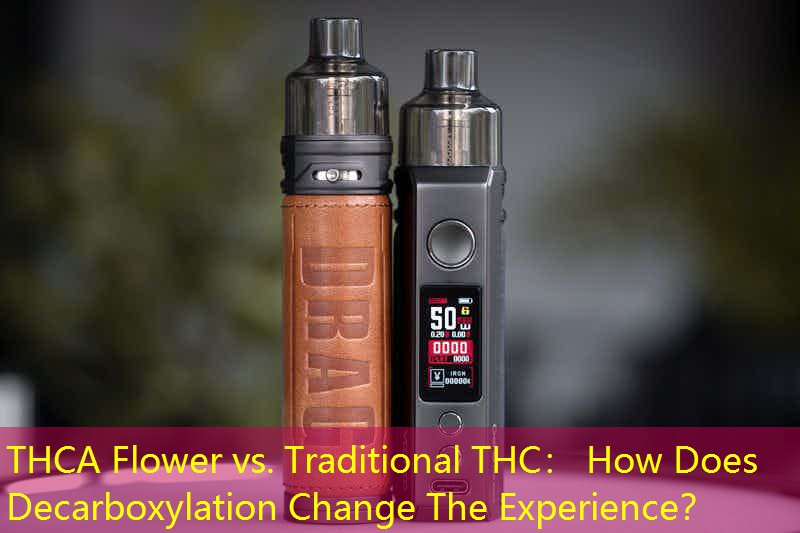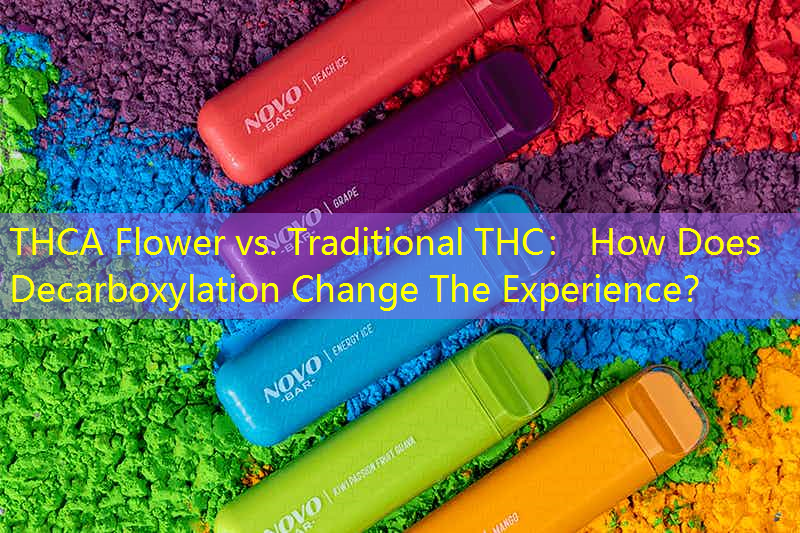Introduction to THCA Flower and Traditional THC
In the evolving landscape of cannabis consumption, Om die verskille tussen THCA -blom en tradisionele THC te verstaan, is van kardinale belang vir sowel beginners as gesoute entoesiaste. Namate cannabinoïden meer uitgebrei word, Die belangrikheid van dekarboksilering - die proses wat THCA omskakel, 'n nie-psigo-aktiewe verbinding, In THC, wat psigo -aktiewe effekte oplewer - voorop sigbaar. Hierdie artikel delf die nuanses van THCA -blom en tradisionele THC, Ondersoek hoe dekarboksilering die gebruikerservaring verander.
Understanding THCA Flower
THCA flower, Afkomstig van cannabisplante, Bevat 'n hoë konsentrasie tetrahydrocannabinolic acid (THCA). Hierdie verbinding is volop in rou cannabis en bly grootliks nie-psigoaktief totdat dit aan hitte blootgestel word. Gebruikers waardeer THCA dikwels vir hul moontlike terapeutiese voordele, which may include anti-inflammatory properties and neuroprotection without the “hoog” associated with traditional THC. Many users prefer the properties of THCA flower for its purported ability to enhance wellness without influencing cognitive function.
Decarboxylation Explained
Decarboxylation is the chemical reaction that occurs when cannabis is heated, transforming THCA into THC. This transformation typically occurs at temperatures above 220°F (104°C), making methods like smoking, damping, or cooking ideal for activating the cannabinoid. The process not only increases the potency of cannabis but also alters its overall effects, shifting the focus from therapeutic benefits to psychoactive experiences.

Experience Differences: THCA vs. Tradisionele THC

Users of THCA flower often report a clear-headed experience with minimal psychoactivity, allowing them to engage in daily activities without feeling intoxicated. Daarenteen, traditional THC can lead to an altered state of consciousness, characterized by euphoria, relaxation, and sometimes anxiety or paranoia. Decarboxylation thus significantly changes the consumption outcome and is fundamental to understanding how different forms of cannabis will interact with your body.
Consumption Methods
For those interested in THCA, consumption typically involves raw cannabis forms—such as juicing or adding it to smoothies. For traditional THC use, rook, damping, or baking with activated cannabis is the prevalent method. Each method affects the onset and intensity of the experienced effects, hence users should choose their approach based on the desired experience.
Konklusie
Samevattend, the distinction between THCA flower and traditional THC is rooted deeply in the process of decarboxylation. This process not only elevates the psychoactive properties of cannabis but also transitions its use from purely therapeutic to recreational. Understanding these differences is essential for users aiming to harness the benefits of cannabis optimally, whether seeking wellness or enhanced sensory experiences. As the cannabis industry continues to innovate, both THCA and THC will play vital roles in the future of cannabinoid therapies and recreational use.







